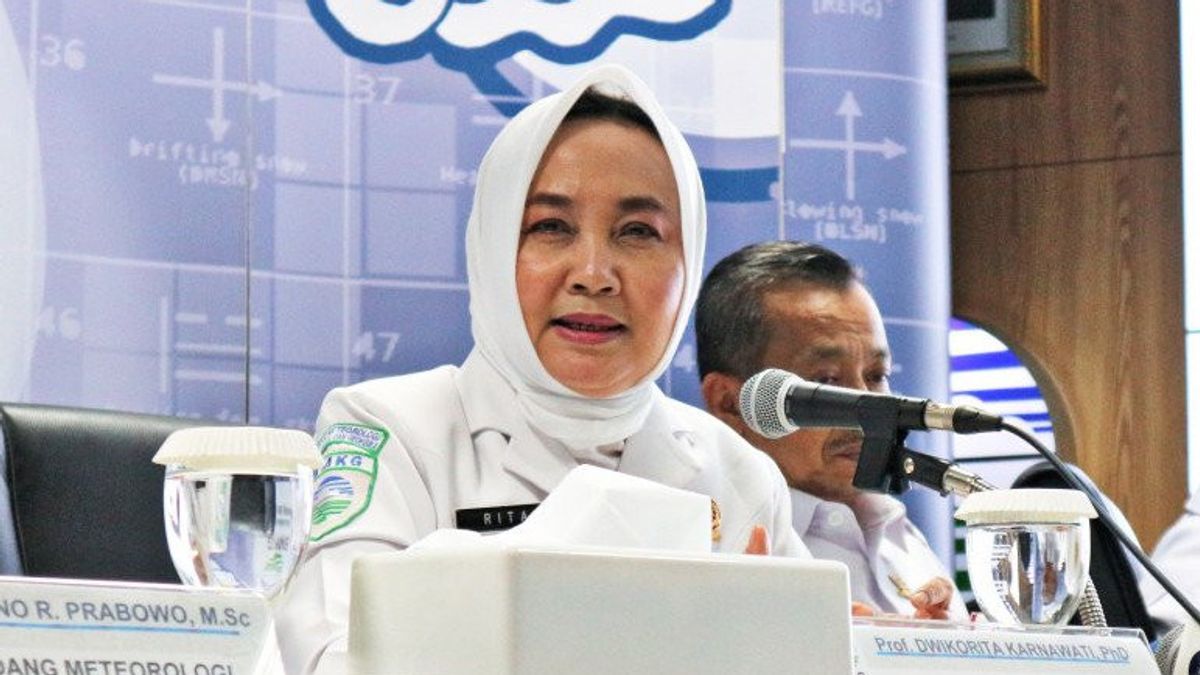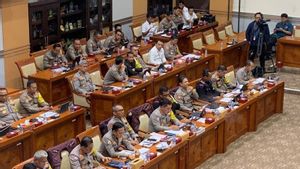JAKARTA - Head of the Meteorology, Climatology and Geophysics Agency (BMKG), Dwikorita Karnawati said that based on data from the World Meteorological Organization, 2023 it was declared the hottest year in the history of climate recording.
"From data from the World Meteorological Organization, July-August 2023, it is recorded as the three hottest months in history, by listening to climate evolution in 2023, this year has a great opportunity to become the hottest year in the history of climate recording," Dwikorita said as quoted by ANTARA, Wednesday, November 15.
"The hot temperature in 2023 beat when El Nino was strong in 2016, even the world meteorological organization concluded, there is a huge potential for drought due to the trend of rising temperatures as a result of this climate change," he said.
Dwikorita said climate disasters in 2023, occurring at a global level, including Italy, Greece, North Africa which in July 2023, temperatures reached 47 degrees Celsius, even America in the west reached 53 degrees Celsius, and for 31 consecutive days, temperatures reached more than 43 degrees Celsius.
"This has never happened before, as a result of the heat waves that occurred in many places simultaneously, and in July 2023, it was recorded as the hottest month in history, on average hotter than 30 years before this," said Dwikorita.
For the time being, Indonesia is still in a relatively safe condition, most likely due to its humid territory surrounded by a wider ocean from the mainland.
"But watch out for, lifestyles can cause drought locally, when El Nino can have an impact on drought for more than three months, and the trend will increase," he said.
The continued impact of rising temperatures due to an unenvironmental lifestyle that results in drought, will lead to disruption of food security in the middle of the 21st century or around 2050.
"There has been an increase in vulnerability to world food stocks, and according to the World Food and Agriculture Organization (FAO), nearly 500 million small-scale farmers who produce more than 80 percent of the world's food stocks will be severely affected, because they are most vulnerable to climate change," he explained.
اقرأ أيضا:
To deal with the global climate crisis, Dwikorita emphasized the importance of adaptation and mitigation efforts through three mutually connected pillars, namely policy, service and science.
"S science is very important for the development of knowledge and innovation in line with the development of the challenges of climate phenomena that are happening today. However, science alone cannot yet be executed, so it must be integrated with policies, which in turn are the executors in services," he said.
The scheme, he continued, could be carried out through collaboration between institutions, in the field of science, for example by the National Research and Innovation Agency (BRIN) together with universities, then policies through the Ministry of Environment and Forestry or related ministries, which were strengthened by the DPR RI, until finally executed by the BMKG.
"The policy framework, science, and services in climate change really have to be related to each other," said Dwikorita Karnawati.
The English, Chinese, Japanese, Arabic, and French versions are automatically generated by the AI. So there may still be inaccuracies in translating, please always see Indonesian as our main language. (system supported by DigitalSiber.id)


















